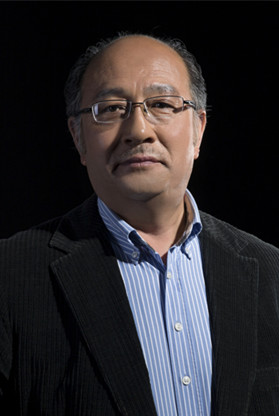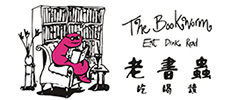Press

8 Questions for Hou Mingliang;
Bio: Hou Mingliang
Mr Hou, what have you been busy with lately?
Pondering a few questions and doing a few things; for instance:
1) Using the international standard ISLI to identify and build a framework for original illustrations, creating a database of graphic images with illustrations as the core content.
2) Exploring the types of application and business models for illustrations so as to increase the value of IlluSalon, China’s largest global illustration resource platform.
3) Studying the feasibility and operability of online education for illustrations.
4) Completing work related to the Global Illustration Award, and attempting to carry out operations relevant to the Global Illustration Award in China.
5) Planning and designing the picture book project concerned with original works from China.
The Global Illustration Award (GIA) is a cooperation project of the Frankfurt Book Fair, International Information Content Industry Association, and IlluSalon. It is also the first time a large-scale international illustration contest is operated by a Chinese organization. Can you briefly tell us about this Award?
The GIA is a large-scale global illustration competition hosted by the Frankfurt Book Fair in conjunction with the International Information Content Industry Association, and exclusively operated by IlluSalon (Beijing) Culture Media Company Limited.
The first GIA, held in 2016, attracted submissions of more than 10,000 works from over 50 countries around the world in less than two months. A beginning like that was well above expectations, and was, to us, nothing short of a “miracle”. At the GIA prize-giving ceremony held at the Frankfurt Book Fair on October 20, 2016, a total of five Gold Awards and 10 Excellence Awards were presented to illustrators from seven countries and regions.
Through establishing this Award, we hope to provide a platform for a new generation of illustrators to display their talent and to communicate with one another. We also hope that rich and colorful illustrations can help drive growth in the content industry. Above all, we believe that the communicative function of illustrations is growing, and its effect in everyday life should not be underestimated. The purpose of establishing this Award and presenting prizes at the largest book fair in the world is to show the enormous value illustrations have created for world culture.
Do you have any regrets about the first “GIA”? Do you have any thoughts or ideas about the second GIA, which is just around the corner? What are some of the highlights this year?
When it comes to a new award, there will always be some regrets as far as holding a competition for the first time is concerned. For instance, although the number of submissions and the diversity of content we received were overwhelming, the difference in quality of the works submitted was also quite large. Nonetheless, this did not hinder our selection of works with outstanding means of artistic expression, creativity, and that left a deep impression. This year, we’ll find a way of bringing the submitted works to a more stable and professional level, only then can the selected works play their role as benchmark and bellwether.
Compared to last year, the upcoming 2017 second GIA has added an original picture book award to the competition category, inviting illustrators around the world to tell their stories and cultures. At the same time, the theme illustration award has received full support from Frankfurt Book Fair Guest of Honour organising committee and the SCAC-IFC. This year’s theme is: France - diversity and creation. I’m really looking forward to active participation from global illustrators!
You and your team founded IlluSalon, a global resource platform for illustrators, last year. What is its current state of development?
IlluSalon is a business entity that has the GIA as bellwether, and the agglomeration of global illustration resources as its principal business activity. It also works on priority projects of the State such as the application and promotion of ISLI. Applying ISLI on illustration resources is a brand-new field and all-new application category, and carries great significance. At this time, all business activities of IlluSalon are operating smoothly, and many business models have been crystallized. We’re still in the process of trying out new businesses. In an era where information and content require speedy and accurate transmission, the possibilities of illustrations are endless. The outlook is positive.
What are the biggest difficulties and challenges IlluSalon has encountered in facilitating cooperation between international illustrators and domestic entities?
When working with international illustrators, there are many challenges that are caused by language, customs, ethnic, geographic location and other differences. These challenges are precisely where the value of IlluSalon’s international connection operations lies. So these aren't really difficulties. In the last few years, for instance, the pace of domestic publishers has been very quick. They often hope that an illustrator can complete a book between one and two months, but international illustrators, especially European illustrators, hope to have the time to come to a deeper understanding of their works, and better polish them in detail, rather than be engaged in an assembly line work model. We normally have to spend quite a lot of effort to balance the demands of the two parties, ensuring the book launch timing of publishers without compromising the quality of the illustrations.
What are some of the areas you think original children’s books/picture books from China have done quite well? In what areas are improvements still required?
Original picture books from China are witnessing a spurt of creativity at this time. This is a truly encouraging sign. An increasing number of publishers has begun to initiate research in and development of original picture books. Some of these original picture books are of extremely high quality, particularly in the area of cultural content. If I have to talk about areas that require improvement, I personally think that the biggest charm of picture books is its perspective from that of a child. Whether these are illustrations with unique artistic aesthetics or literary text with deep metaphoric significance, they should be child oriented. Currently, there are relatively few exquisite picture books of this sort in China.
Many children don’t read a lot these days. How do you think reading promotion should be carried out?
China has been increasing its focus on promoting reading. This is evident from the increasing number of reading promoters, promotion entities, and reading promotion products. However, an effective reading promotion program for all citizens must be an interwoven and complementary systematic network that encompasses families, schools, libraries and the like, all of which are indispensable; only then can the reading habit of an entire nation be truly cultivated. Many local government departments are already well aware of this problem, and are organizing or bringing together relevant reading promoters, institutions, libraries and other resources to create a network that offers spiritual sustenance for children. In addition, the basis for reading promotion is to develop special early childhood reading material that will help cultivate a reading habit among Chinese children, particularly products for the age cohort of 0-3 years. Being able to cultivate a child’s reading habit at this age cohort would be half the battle.
Name one or some of the illustrators you most admire.
All the illustrators we’ve signed have their own unique characteristics. I can't help but stop and savor every piece of work they produce. Selecting an illustrator is like choosing clothing and accessories. The best does not exist, only the most appropriate. If I were to publish a book one day, the illustrator(s) I will work with will definitely be my favorite(s).









































